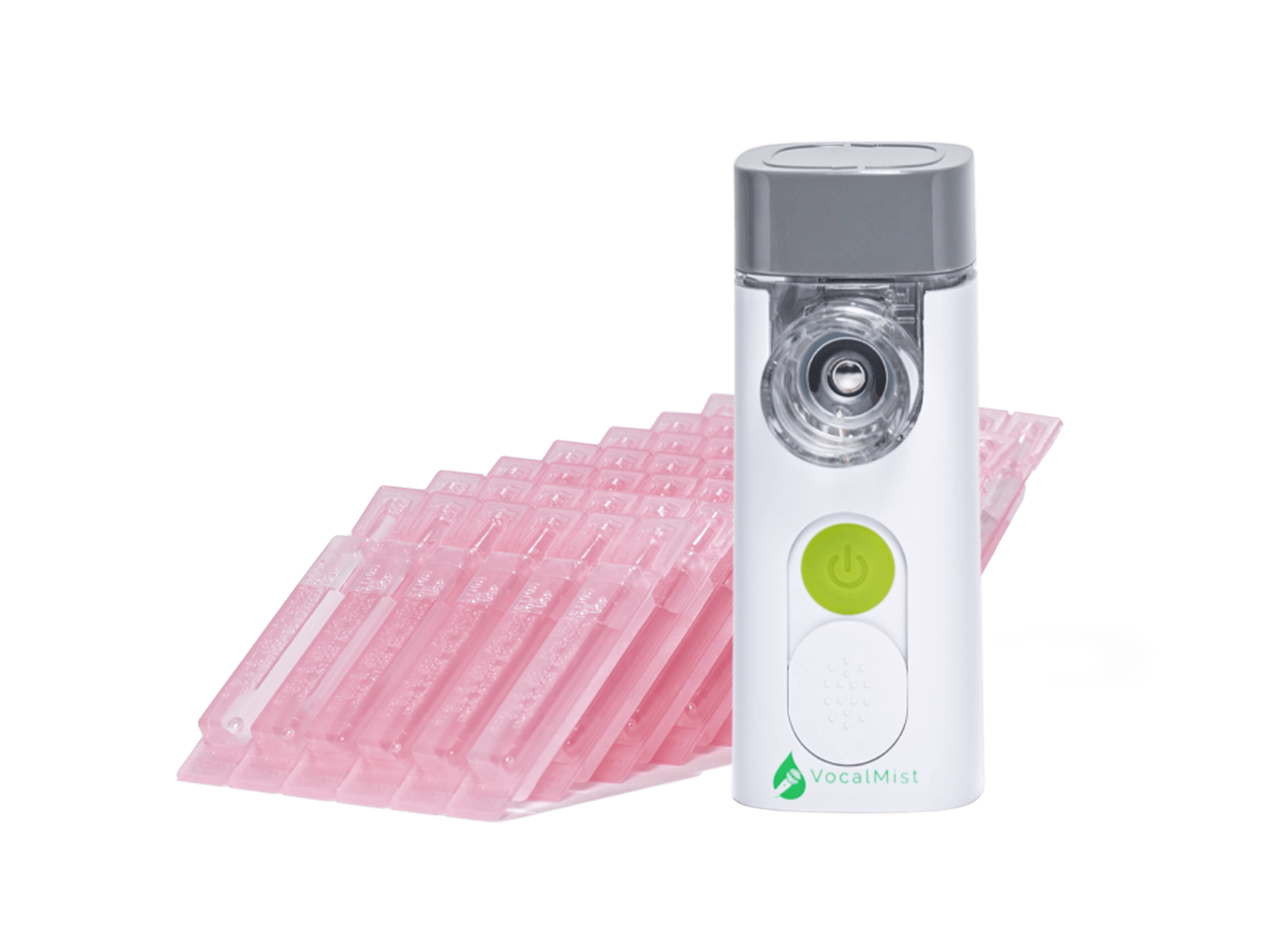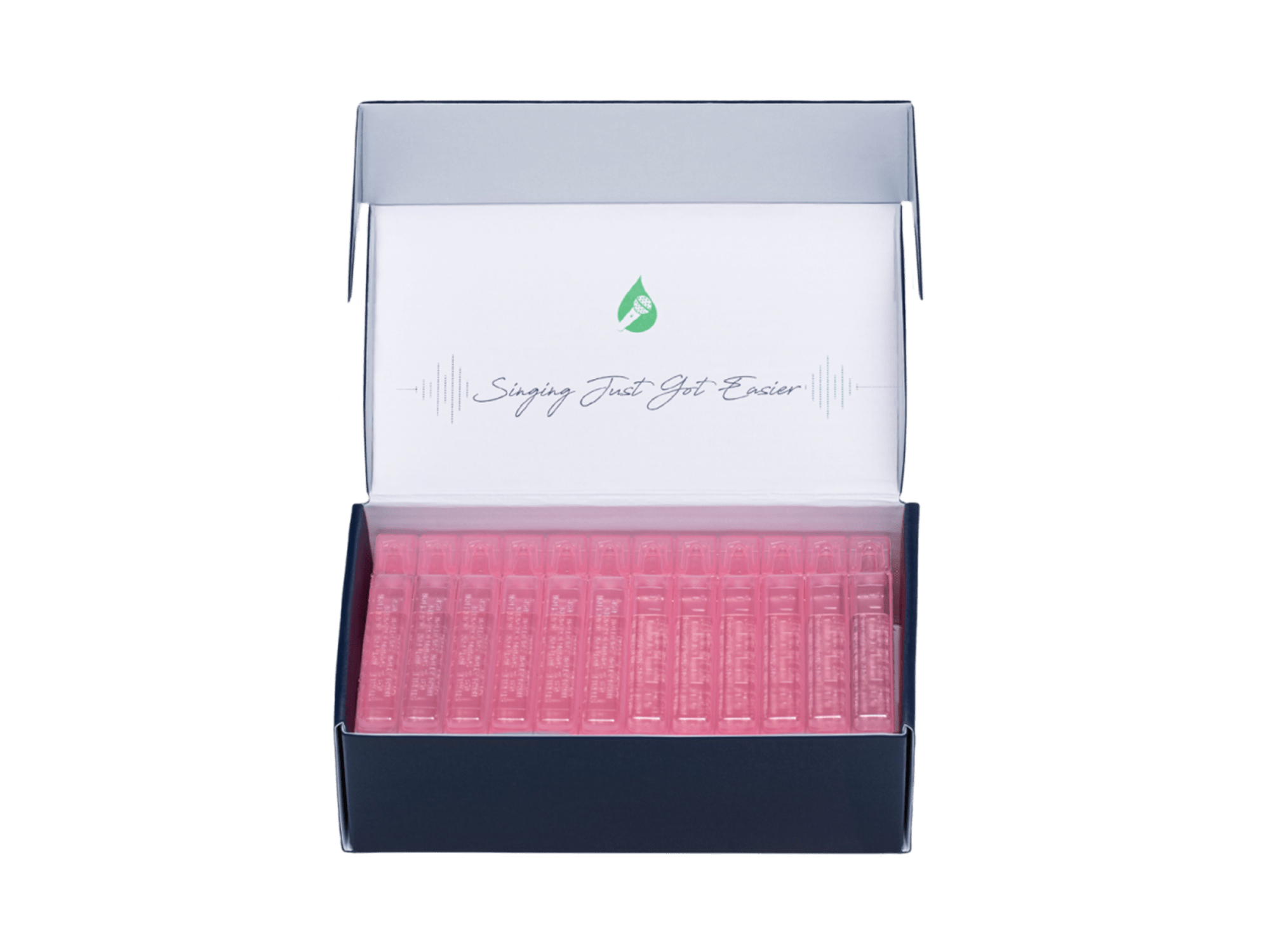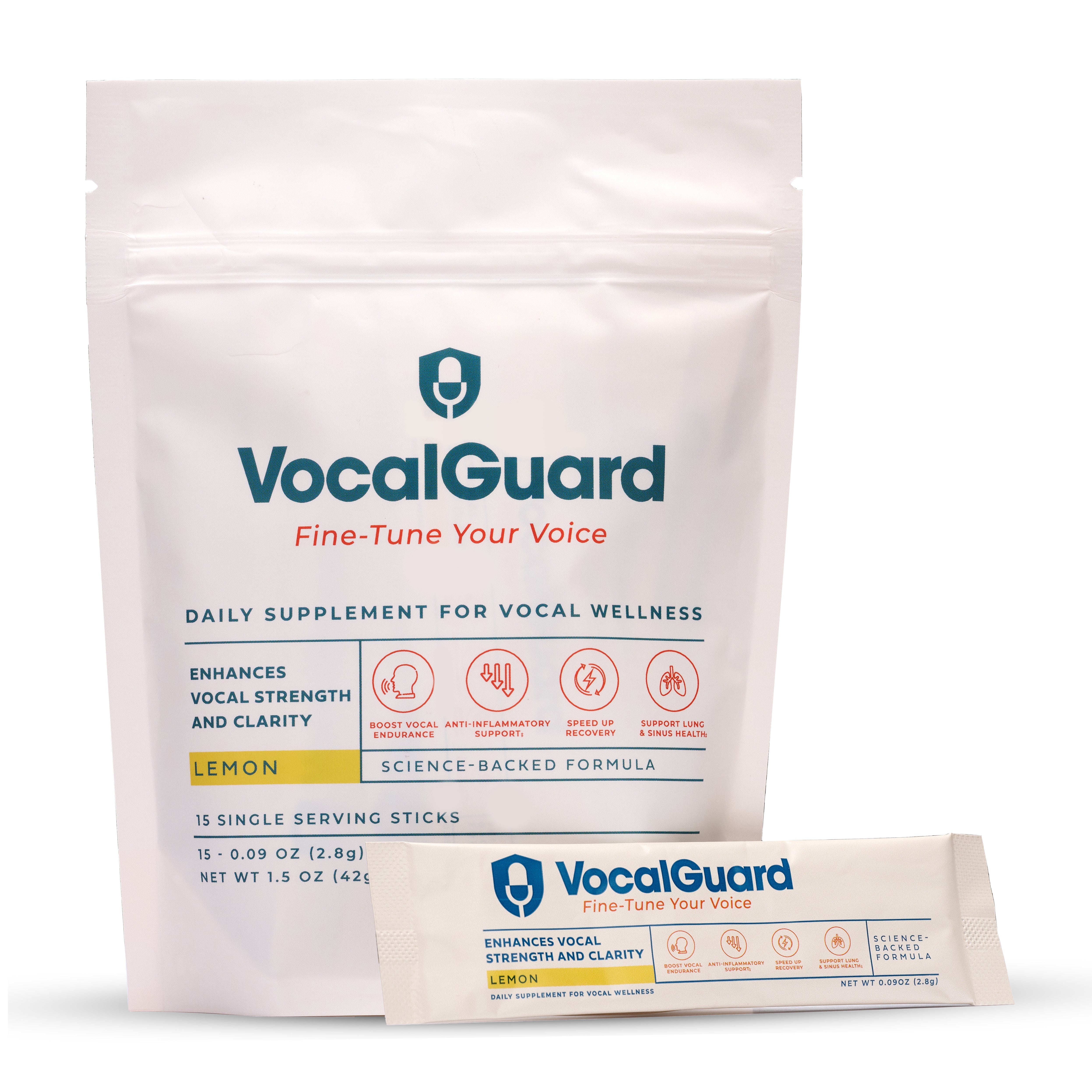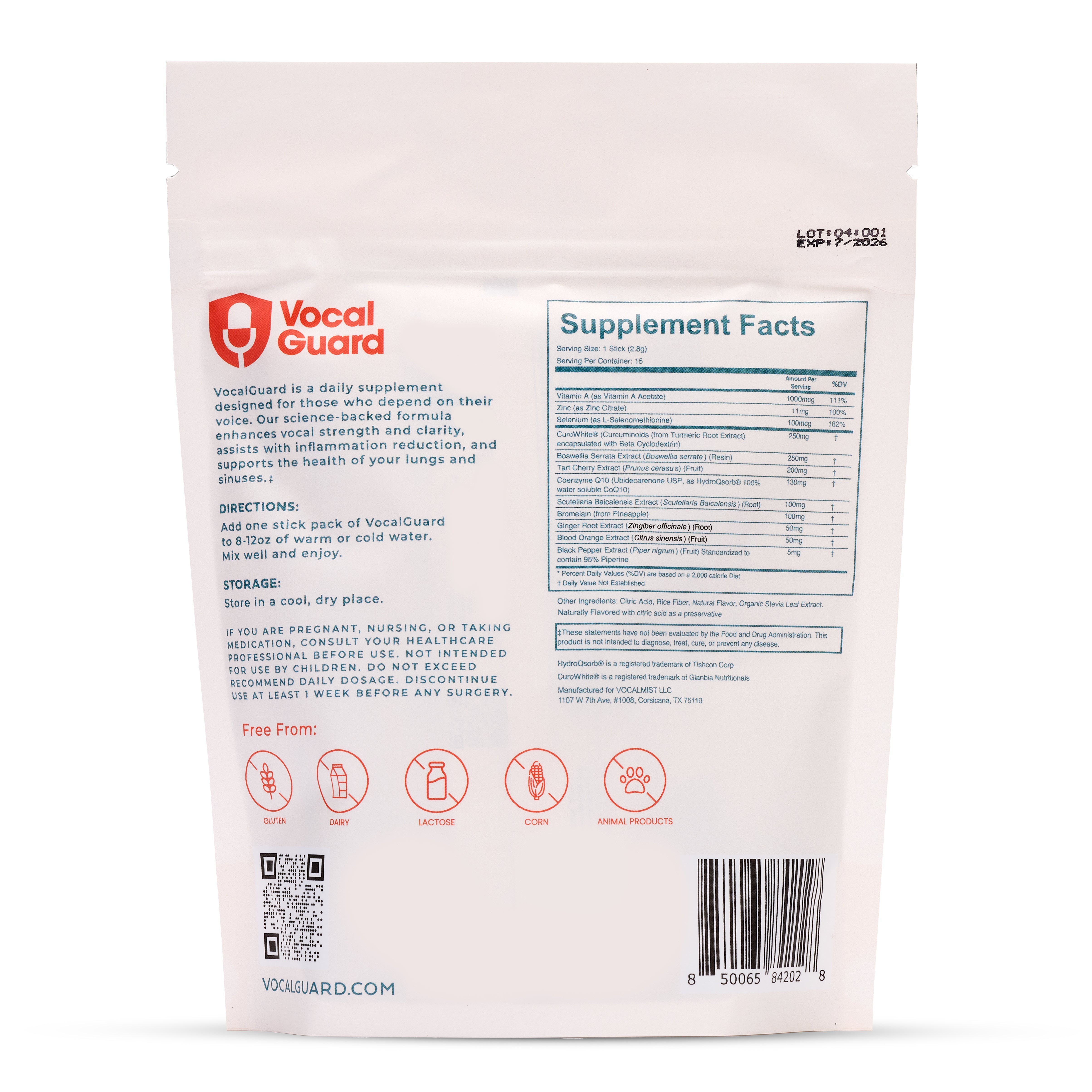As a professional singer, your voice isn't just your talent—it's your livelihood. Achieving good vocal health is paramount, especially when you're touring. Late-night gigs, frequent travel, and irregular sleep can strain your vocal cords. This comprehensive guide offers vocal health tips to keep your singing voice healthy while on the road.
Section 1: The Importance of Hydration for Singers' Vocal Health
Stay Hydrated: The Cornerstone of Vocal Health
Hydration is absolutely essential for maintaining good vocal health for singers. Keeping your throat adequately moist is crucial as it ensures optimal lubrication of the vocal cords, allowing for smooth and effortless singing. To achieve this, it is recommended to aim for at least eight glasses of water daily, ensuring your vocal cords are well-hydrated throughout the day. Remember, staying hydrated is key to preserving and enhancing your singing abilities!
Electrolytes and Vocal Health
For those who sing professionally, while it is vital to drink plenty of water it's important to note that lots of water can also lead to an expulsion of electrolytes from your body, which play a crucial role in keeping you hydrated. Thus, if you're significantly increasing your water intake, it's worth considering supplementing with electrolytes to balance out the levels in your body and maintain optimum hydration.
Avoid Dehydrating Substances
To maintain great hydration levels, it is advisable to steer clear of caffeinated beverages and alcohol. These substances have the potential to dehydrate you, thereby impacting not only your voice quality but also your overall well-being.
VocalMist: Your Hydration Partner
For an extra layer of hydration and care for your voice box, consider using the VocalMist Nebulizer. This innovative tool is designed to help your voice adapt to various factors such as location, humidity levels, and personal needs. Whether you are a professional singer, public speaker, or someone who simply wants to keep your voice healthy, the VocalMist nebulizer is a valuable asset in helping avoid voice problems. Featuring a design that is both user-friendly and intuitive, this solution offers a convenient and highly effective approach to ensure optimal vocal care and hydration.
Section 2: The Role of Rest in Vocal Health
Vocal and Physical Rest
Maintaining a healthy balance between work and rest is of utmost importance. Your vocal cords, just like any other muscle in your body, require adequate time to recover and rejuvenate. Rest is one of the only things you can do to help a tired voice.
Embracing Vocal Silence: A Critical Aspect of Vocal Health
In the same vein as ensuring physical rest, allocating time for complete vocal rest is equally vital for keeping your voice healthy. This means a period of silence, where you refrain from any form of vocalization, including speaking. This practice allows your vocal folds to rest and recover from the rigorous demands of singing. Just like an athlete needs recovery time after an intense workout, your voice also needs time to rest to prevent straining and potential damage. Allowing yourself periods when you avoid talking can be a beneficial self-care strategy, leading to healthier vocal folds and improved vocal performance. Remember, silence is not only golden but also essential for a healthy voice.
The Importance of High-Quality Sleep
Aim for a recommended duration of 7-8 hours of quality sleep each night to promote optimal voice care and overall well-being. In addition to prioritizing sufficient sleep, it is crucial to incorporate dedicated vocal rest periods, especially when engaging in consecutive performances or intense vocal activities.
Remember, taking care of your vocal folds is an essential part of maintaining a strong and resilient voice for all your present and future endeavors.
Getting a good night's sleep is not only about the duration but also the quality. It's important to create a sleep-friendly environment that promotes deep and restful sleep. This can involve factors such as optimizing the temperature, reducing noise and light disturbances, and having a comfortable mattress and pillows that provide adequate support.
By prioritizing a conducive sleep environment, you allow your vocal cords to fully recover and vibrate optimally the following day, ultimately enhancing your overall vocal performance and ensuring you're at your best. So, take the time to create a peaceful and relaxing sleep space, and reap the benefits of improved sleep and voice rest.
Noise Levels and Vocal Strain
To minimize vocal strain and protect your singing voice, it is highly recommended to limit your exposure to loud environments. When attempting to make oneself heard in noisy environments for an extended period, one can unknowingly push their voice past the warning signs and closer to voice disorders. One effective solution is to consider using active noise-canceling headphones, which not only reduce external noise but also help you be aware of when you speak loudly. By reducing how often you raise your speaking voice, these headphones can help you preserve a healthy voice in noisy settings.
Section 3: Lifestyle Choices for Vocal Longevity
Lead a Healthy Lifestyle for Vocal Longevity
A balanced diet rich in fruits, vegetables, and lean proteins provides nutrients that support vocal health as well as your entire body. Consuming a nutritious diet can contribute to reducing inflammation within our bodies, thereby benefiting our vocal capabilities.
Foods to Avoid
Certain vocalists have discovered that steering clear of dairy products and excessive sugar can effectively alleviate inflammation and mucus build-up. Excess mucus buildup starts in the sinuses but then can end up traveling down your throat where it affects how your vocal cords vibrate.
While some singers find that spicy foods help clear their sinuses, others feel that they promote excess stomach acid and acid reflux, so they choose to avoid spicy foods.
By integrating these dietary considerations into your daily routine, you can proactively safeguard the longevity and excellence of your vocal abilities.
Teas and Beverages
When it comes to hydrating, it's important to choose your beverages wisely. Instead of consuming extremely cold or hot drinks, opt for room-temperature water or lukewarm herbal teas, which are more gentle on your throat.
While throat spray and herbal tea never directly touch the vocal folds themselves, the ingredients in certain teas may help reduce inflammation, open your sinuses, and make your throat feel less agitated, leading to less throat clearing and built-up tension. Ingredients like slippery elm, licorice root, and marshmallow root are good things to look out for in this regard.
Exercise and Vocal Health
Regular exercise is not only crucial for maintaining good overall health, but it also offers numerous benefits for performers. Engaging in physical activities enhances breath control, boosts energy levels, and improves stamina, all of which are essential for delivering outstanding performances.
When it comes to choosing exercises, opting for low-impact options like yoga, swimming, or walking can be particularly beneficial for those who sing as they help prevent strain on the voice. By incorporating these exercises into your routine, you can keep your voice and your body healthy.
Section 4: Techniques for Vocal Health
Warm Up Your Vocal Cords
Just as athletes warm up their muscles before games, singers should also treat their voice as a muscle that needs preparation. Effective vocal warm-ups before performances can greatly enhance vocal flexibility and prevent injury. Some beneficial warm-up exercises include gentle lip rolls, vocal slides, and humming. These exercises help to loosen up the voice and keep the vocal cords healthy.
The Importance of Vocal Cool-downs
After a performance, it is essential to engage in vocal cool-downs, which are low-impact techniques designed to alleviate strain and tension on the vocal cords. By incorporating these cool-downs into your routine, you can help maintain the health of your vocal cords and prevent long-term damage. Taking the time to keep your voice healthy after singing or speaking can make a significant difference in your vocal longevity and ability to sing those high notes! Remember, it's not just about the performance itself, but also about the proper care and maintenance that follows.
Section 5: Environmental Factors and Vocal Health
Protect Your Vocal Folds from Environmental Stressors
Cold weather and dry conditions can be particularly harsh on the delicate tissues of your vocal cords. To protect your voice, consider using a humidifier in your hotel room to add moisture to the air. Additionally, pay attention to your clothing choices, opting for warm and comfortable attire (scarves, high collars) that can help shield your throat from the cold.
Avoid Secondhand Smoke
Exposure to secondhand smoke can harm your singing voice, causing irritation, inflammation, and potential voice changes. Serious voice users should avoid smoke-filled environments to maintain vocal cord flexibility and performance. Opt for smoke-free spaces to protect your voice.
Section 6: Professional Guidance for Vocal Health
Work with a Professional Vocal Coach
Working with a professional vocal coach, even while traveling or on tour, can contribute significantly towards building and maintaining optimal habits for singers. A seasoned vocal coach not only imparts proper vocal technique but also focuses on nurturing healthy practices that are sustainable in the long run. They can help you understand your unique vocal requirements, guide you in tailoring warm-up and cool-down exercises, and aid in managing a tired voice.
Furthermore, the right coach can provide crucial insights on how to adapt your voice therapy regime based on varying tour conditions, ensuring your voice remains resilient and performance-ready, regardless of environmental challenges. Thus, investment in a professional vocal coach should be viewed as a commitment to your vocal longevity and success as a performer.
Having a private vocal coach while traveling is a luxury that the highest tier of professional vocalists can afford. But, let's not forget that intermittent vocal lessons with professionals during your travels can also be highly beneficial. Scheduling these sessions can provide fresh perspectives, allowing you to adapt and enhance your techniques as per different coaches and their unique approaches.
Seeking referrals from fellow professional vocalists can be an effective way to find reputable vocal coaches along your travel route. This network-based approach not only ensures that you find trusted professionals but also presents opportunities to learn from the collective experiences of your peers within the music industry.
Conclusion
Maintaining your singing voice on tour involves a multi-faceted approach: staying hydrated, adequate rest, a balanced lifestyle, and proper vocal techniques are all crucial. These tips aim to help singers give their best performance while keeping their vocal folds healthy, and tools like the VocalMist continue to serve singers well across the musical world. Life on the road is demanding, but with these guidelines, you can step into the spotlight, confident that your voice will shine.
For more advanced tips on vocal health, consult a voice specialist or a speech-language pathologist, or click here to read more on our VocalMist blog.






1 comment
Very valuable advices. Thank you! Is there anything to take for a dry throat?
Leave a comment